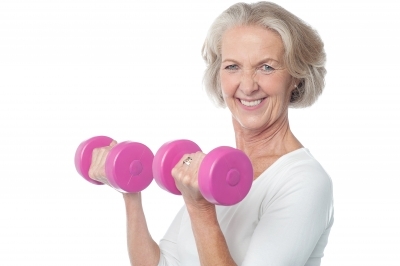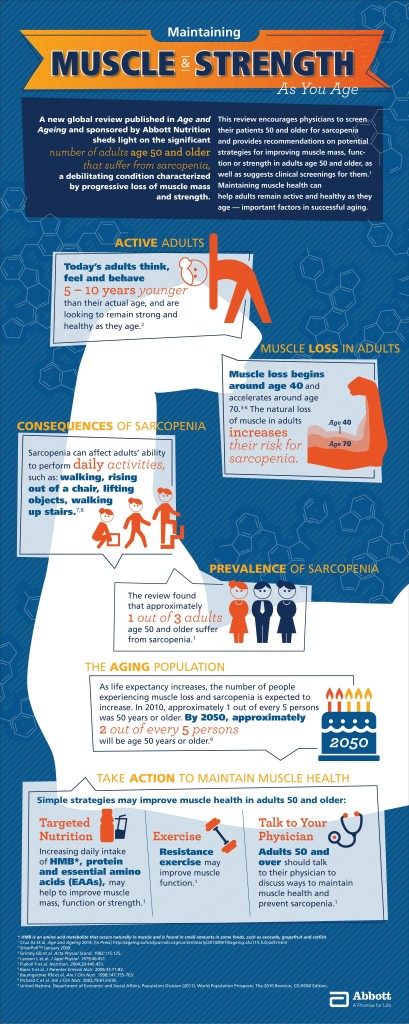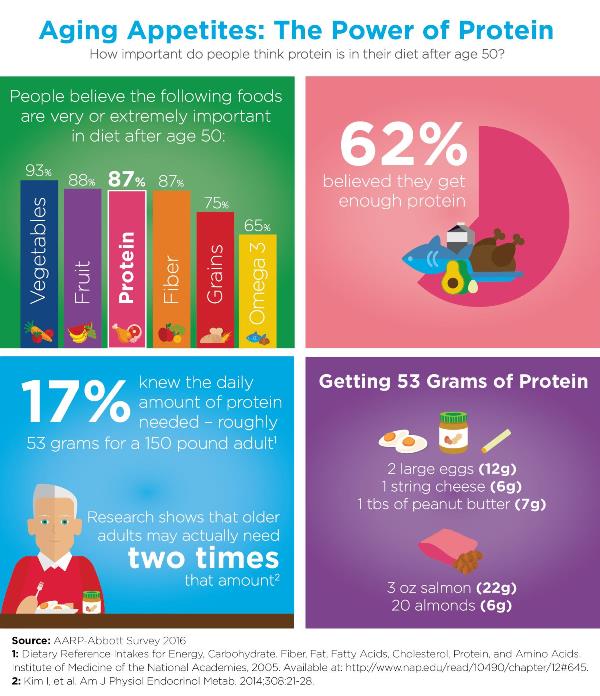Most adults lose up to 8% of their muscle mass each decade after age 40. This can accelerate to 15% at age 70. Many of us are aware of the importance of strong muscles, but are we doing all we can to make sure they stay that way?
If you think about your body as a house, your bones are the frame, yourmuscles and tissues are the infrastructure and insulation, and your blood is the circulation system. Like a house, you need to maintain your body tominimizesags, droops, warps, creaks and cracks that come with age.

Lifting light weights helps strengthen your muscles. Photo: Free Digital Photos
According to a study conducted by AARP and Abbott with 1480 adults age 50 and over, nearly 3/4 of respondents (73%) said they knew adults naturally lose muscle with age, and 28% said they already noticed some loss in their bodies. Nearly 95% reported they had a serious or chronic health condition after turning 50. Over a third (35%) reported being hospitalized due to a serious or chronic health condition. Among those, loss of strength (40%) and muscle loss (21%) were among their top concerns before and after.
Muscle loss and weakness with aging is a condition called sarcopeniawhich can result in decreasedstrength, energy and mobilityand increased risk of falls, illness and poor health into old age. Sarcopeniaaffectsabout 45 percent of older adults in the U.S.

Infographic: AARP-Abbott Survey
Muscles need two things to stay strong: fuel (protein) and exercise (resistance + cardio + stretching).Maintaining a lean body mass is important forenergy and strength and to reduce your risk for major illness. But how much protein do you need, and how do your needs change as you age? You have many options when it comes to proteinno matter what type of diet you follow. While animal protein is an obvious choice, plant based protein isplentiful. But you have to eat for your body type and age.

Consuming enough protein in your daily diet helps nourish your muscles. Infographic: AARP-Abbott Survey
Tiffany DeWitt, a Registered Dietitian with Abbott,will discuss ways to maintain your muscle with the right amounts and types of protein and exercise. And we’ll debunk a few muscle myths, like certain exercises and foods “bulk you up.”

Tiffany DeWitt, RD, Abbott
Live,Monday, August 8, 4pm on W4WN.com. Podcast permanently to iHeart.com and the free iHeart App. Click this link to listen to shows anytime. Connect with Melanie on Twitter@mightymelanie Facebook@FearlessFabulousMelanie and Instagram@Melanie Fabulous. Blog and info: www.melanieyoung.com
My Tweetable Eatable for you is this: There is no one-size-fits-all diet, but every body’sneed for protein is uniform. #fearlessfabulousyou

Inspiring women around the world and experts on health, wellness and nutrition. Listen live Mondays 4pm EST on www.W4WN.com – the Women 4 Women Network and anytime on iHeart.com and the free iHeart App (Click here)









